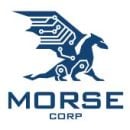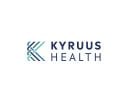You’ve likely seen more companies advertising themselves as “mission-driven” in recent years — and that’s no accident. Around 70 percent of Americans define their sense of purpose through their work, according to a 2021 McKinsey study, and many companies have doubled down on their missions to attract talent.
While professionals are seeking purpose as much as a paycheck, there’s a significant difference between having a mission and being a mission-driven company.
Jim Drewry, VP of product management at Workhuman, told Built In Boston that “missionwashing” is on the rise. To better understand the difference between marketing fluff and a true North Star, Drewry recommends asking employees directly about how their company’s mission impacts them, their work and the business.
We did just that — reaching out to Drewry as well as employees at five other mission-driven Boston tech companies. Continue reading to learn more about how missions help these companies fine-tune their recruiting, build better products and bring meaning to the nine-to-five.
Healthcare organizations use Arcadia’s analytics platform to uncover new insights from their data.
What is Arcadia’s mission?
Our mission is to make sense of disconnected data, give our customers access to a holistic view of human health and enhance its outcomes. That’s a pretty way of saying we don’t just gather the data: We make it simple, actionable and tailored to the client’s individual strategies.
American healthcare is a fractured landscape, with rising labor costs eating away at healthcare bottom lines and clinicians burning out. By centralizing analytic talent in a company like ours, we are able to be a part of the solution. And we don’t just collaborate with our clients. We get to help our clients collaborate with each other.
How does your mission help the business stay on track?
I’d love to say that our mission is a constant reminder keeping us on track, but the truth is we don’t need that reminder. We’re already a bunch of geeks who love to nerd out about what we do. What the mission really helps us with is finding the right healthcare geeks to join the team.
It means a longer candidate search, but it’s worth it months later when we’re sitting around pad thai with our newest hire chatting about the cool strategies clients are asking us to support — and the cool ideas we have on how to support them.
I’ve passed on some brilliant analyst candidates because they weren’t connected to the mission.”
How can jobseekers cut through the fluff to determine whether a company has a mission worth supporting?
Always remember that interviews go both ways. Ask whoever is interviewing you about what they do. Are they excited about what they tell you, and are they proud? This can tell you a lot.
Iterative Health uses AI technologies to enable gastroenterologists to perform more accurate colonoscopies and to increase participation in inflammatory bowel diseases clinical trials.
What is Iterative Health’s mission?
Iterative Health’s mission is to drive greater access and bring increased precision to gastroenterology care — with the goal of optimizing both real-world care, outcomes and clinical research. By leveraging machine learning and computer vision to unlock critical insights from endoscopic videos and other data modalities, Iterative Health aims to optimize the GI care pathway across detection, diagnosis and treatment, ultimately improving outcomes and increasing access for patients. Today, we’re focused on two critical segments in the GI space.
The first is supporting the diagnosis and management of GI diseases via SKOUT, our FDA-cleared medical device that leverages artificial intelligence to help gastroenterologists detect more adenomas during a colonoscopy. The second is increasing recruitment to clinical trials using AI and end-to-end clinical research services to increase patients’ access to potentially life-changing treatments. Both segments have critical unmet needs where AI technology can have a significant impact.
How does your mission help the business stay on track?
We deeply feel our impact on patients in our day to day. Building clinical provider-facing tools not only requires robust technology but, more importantly, a deep understanding of what will drive adoption by physicians and patients. You can have the best technology but if you don’t prioritize usability or access, it will never leave the shelf.
For SKOUT, we’re constantly figuring out how to tune our algorithms to balance sensitivity and specificity to enable GIs to catch all clinically relevant polyps without being distracting or slowed down.
For our integrated offering of AI and services for clinical trial optimization, we need to have a deep understanding of the patient and research team’s end-to-end workflow. Identifying and screening eligible patients is currently incredibly manual and lengthy, and AI technology and services are positioned to make a direct impact by increasing access to more patients and improving their experience.
How can jobseekers cut through the fluff to determine whether a company has a mission worth supporting?
A mission is ultimately deeply personal — there’s no right or wrong mission. Find what keeps you intellectually curious because to make a real impact, you need to be able to deeply empathize with your customer and stakeholders. It’s important to believe that the company has a viable solution to a customer’s pain point and that the company is composed of smart, driven people who will continue to work toward delivering value and learning along the way.
Find what keeps you intellectually curious.”
MORSE undertakes research and development that helps the U.S. military and intelligence community develop advanced hardware and software.
What is MORSE’s mission?
MORSE is a specially selected team of scientists, engineers and software developers who use asymmetric and unconventional approaches to deploy practical solutions that solve difficult multi-disciplinary problems faced by the U.S. national security ecosystem. Our identity is in our name as MORSE stands for “mission oriented rapid solution engineering.”
Ultimately, we take on research and development programs to bring innovation to the U.S. Department of Defense and intelligence community. We tackle a broad set of hard problems, including R&D of novel manned and unmanned aerial and undersea vehicles; development of AI capabilities, including computer vision and other data; and development of tools to test and evaluate artificial intelligence to ensure responsible AI.
How does your mission help the business stay on track?
We are very focused on solving problems that can bring mission-critical impact to the warfighter and have a set of criteria to evaluate if a potential opportunity aligns with our mission and goals. There is so much opportunity to grow and make an impact without chasing distractions. Our capabilities and technology could be useful for commercial applications as well, but this would distract us from the mission.
For us, the biggest wins are when we can field technology and see the benefits it brings to our customers and end users. They are so passionate in what they do, and it is very rewarding to see the impact we can make.
How can jobseekers cut through the fluff to determine whether a company has a mission worth supporting?
One of our core values is “passion for the mission,” and we bring up our mission in first and final round interviews. Defense work may not interest everyone, so we would rather be direct early on and talk about the types of problems we solve. If this type of work does not interest jobseekers, we may not be the right fit. There is a great opportunity to make a real-world impact, solve unique problems and drive innovation here!
One of our core values is ‘passion for the mission,’ and we bring up our mission in first and final round interviews.”
Companies use Workhuman’s employee recognition platform to improve the workplace experience and increase ROI, retention and productivity.
What is Workhuman’s mission?
Workhuman exists to help a company harness the power of its most valuable asset: its people.
We are a global software company building technology that puts people at the center of recognition and performance and then gives them tools to build meaningful connections that amplify culture.
There’s a powerful social aspect to our technology that identifies and promotes work across and between employees in the informal groups where work really gets done. When we put the focus on humans — helping every employee reach their potential and be recognized for their strengths — our customers achieve their goals of building and sustaining culture while also improving their bottom lines.
How does your mission help the business stay on track?
Our mission informs everything we do. We are relentlessly focused on improving outcomes for millions of employees at companies doing some of the most important work in the world. For instance, our products helped build and sustain positive cultures at organizations that were under immense pressure to deliver the first Covid-19 vaccines. Knowing that these essential workers relied on our platform to celebrate each other in such a critical time was incredibly motivating.
Our products helped build and sustain positive cultures at organizations that were under immense pressure to deliver the first Covid-19 vaccines.”
How can jobseekers cut through the fluff to determine whether a company has a mission worth supporting?
I came to Workhuman largely because of the mission, so I can tell you what I learned through that process: There are no shortcut. Lots of companies “missionwash” their work, but when you talk to current and former employees, you’ll know whether the company walks the walk or simply markets well. If you truly want to make a difference, be prepared to invest the effort up front to make sure the mission aligns with your values and is a key part of the company’s culture and business.
Healthcare providers use Kyruus’ solutions to make it easier for patients to search for doctors and schedule appointments.
What is Kyruus’ mission?
Healthcare is hard. Navigating health insurance plans, medical systems and the multitude of care options is difficult or even impossible, especially when you or a loved one are ill. Kyruus’ mission is to make it easy for anyone to find the right care regardless of their background, financial situation or location.
By collecting and organizing health system and health plan data, Kyruus puts the patient first by offering easily navigable applications in the health plan and provider spaces. It brings consumerism to health care and puts the power in the hands of patients to find the care options that best suit their medical needs and preferences. With the dream of assembling all care data in the United States and the world, Kyruus is at the forefront of making healthcare work for everyone.
How does your mission help you stay on track?
It’s easy to lose sight of our mission when we get bogged down in our day-to-day duties. Thankfully, leadership is so mission-focused that you can’t forget why you are here. There are many opportunities to collectively recommit to our mission, be it an all-company event, an all-hands or a quick chat.
Recently, my team and I were heads-down figuring out a new UI and how it could fit into next quarter’s roadmap. Our director then said, “Is this the best way to help our patients?” That question helped us understand the need to not only come up with a more pleasant UI but to optimize the underlying technology of the feature to make it more meaningful to our users. In this small way, we remembered why we are here and the value we bring to patients.
Leadership is so mission-focused that you can’t forget why you are here.”
How can jobseekers cut through the fluff to determine whether a company has a mission worth supporting?
Identify whether or not a company has an active leadership team. Are they participating in webinars and events in the field and not just company-hosted exercises? Are they sharing the message of the company to anyone who will listen? If they are, then you know the mission means something to them.
Understand that a mission starts at the top but must permeate through the whole organization. Find other members of the company and see if they are echoing the message from leadership. Try to find someone willing to speak about the company. If someone says, “yes,” the fact that they are willing to take time to talk about their company to a stranger is meaningful.
Yahoo, Bleacher Report and Sephora are just a few of the brands that use 3Play Media’s captioning, transcription and localization technology and services.
What is 3Play Media’s mission?
3Play Media was founded on a mission of inclusion: to make media widely accessible. We do this by providing captioning, subtitling and audio description services, which are critical needs for people with disabilities and significantly enhance the experience for all viewers. However, it’s a traditionally manual, expensive and time-consuming space.
For every product and service we’ve introduced in the last 15 years, we’ve asked the same few questions: How can we do this differently than it’s been done? How can we introduce scale, efficiency and affordability, and how can we do all of that without sacrificing premium accuracy and quality?
We now have 11 patents in the media accessibility space and utilize a combination of AI and humans across all product lines to ensure premium quality access with significantly improved efficiency and affordability for content producers.
In addition, focusing on workflow improvements via media platform integrations and APIs allows customers to scale their accessibility operations without manual effort. For massive, fast-paced media organizations, the ability to deliver premium quality at scale within hours is game changing.
How does your mission help the business stay on track?
Our mission is core to who we are. We’re not just an accessibility company. We are authentic to the mission of inclusion, and that authenticity permeates our culture, decision making, position in the market and our reputation with customers.
In a lot of ways, our mission is a North Star. As the head of marketing, I think critically about our positioning and branding and weigh it against this North Star: Does it align with our mission? Is it authentic? Does it support and empower the disability community? These questions have led us to become thought leaders in our space, constantly working to educate ourselves and our audiences about the nuances of media accessibility.
Our mission also helps us stay grounded in times of change. For example, AI is a huge topic of interest, and we constantly run into the question of whether automated speech recognition is good enough for captioning. Our stance on this is “no” because of our mission: ASR is far from achieving more than 99 percent accuracy, and because we believe that the deaf community requires and deserves equal access, arriving at our answer was easy.
How can jobseekers cut through the fluff to determine whether a company has a mission worth supporting?
I think the first question is: Is the mission clear? If not, it’s probably not a huge part of the business or culture. Look through the company’s about page, careers page and through its marketing content to see if its mission permeates their positioning. If the mission is clear, is it also a core part of their public and employer branding?
Then the question is really very personal as whether a mission is worth supporting depends on your own values and priorities. I know for myself that working for a company that gives back and does good in the world is critical to my happiness. What matters to you?
If the company’s mission resonates with your values and permeates their public and employer branding, it’s likely one that will keep you happy and motivated for a long time.
If the company’s mission resonates with your values, it’s likely one that will keep you happy for a long time.”














